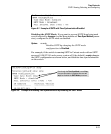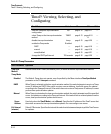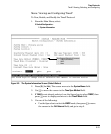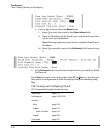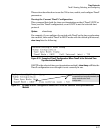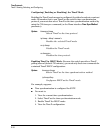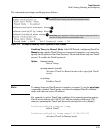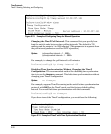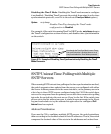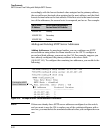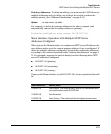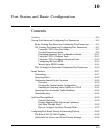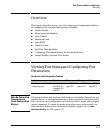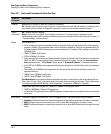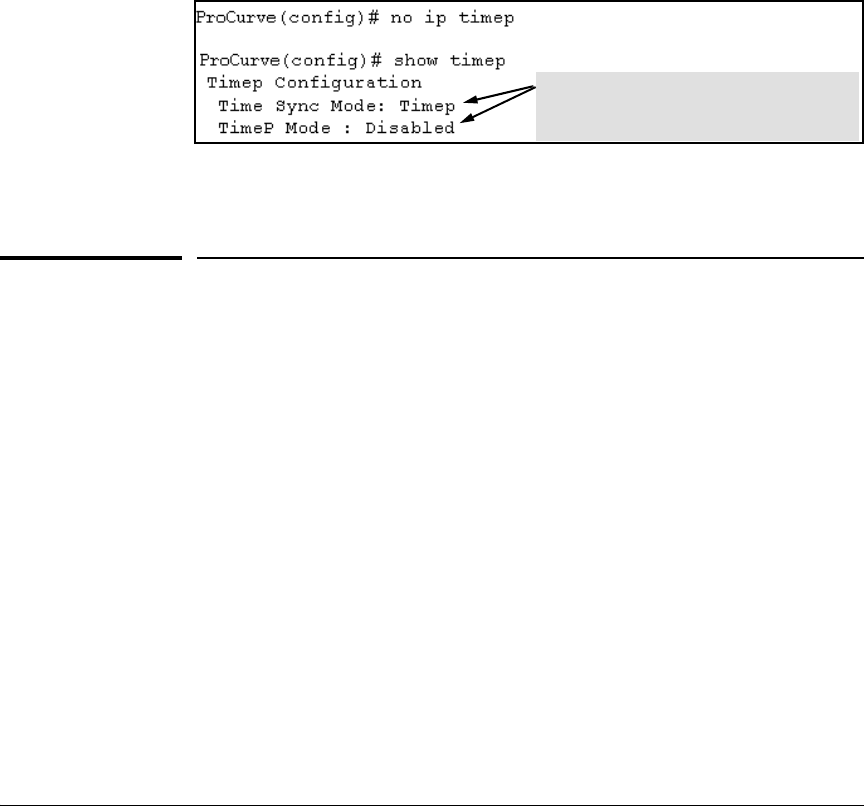
9-21
Time Protocols
SNTP Unicast Time Polling with Multiple SNTP Servers
Disabling the TimeP Mode. Disabling the TimeP mode means to configure
it as disabled. (Disabling TimeP prevents the switch from using it as the time
synchronization protocol, even if it is the selected
Time Sync Method option.)
Syntax: no ip timep
Disables TimeP by changing the TimeP mode
configuration to Disabled.
For example, if the switch is running TimeP in DHCP mode, no ip timep changes
the TimeP configuration as shown below, and disables time synchronization
on the switch.
Figure 9-15. Example of Disabling Time Synchronization by Disabling the TimeP
Mode Parameter
SNTP Unicast Time Polling with Multiple
SNTP Servers
When running SNTP unicast time polling as the time synchronization method,
the switch requests a time update from the server you configured with either
the Server Address parameter in the menu interface, or the primary server in
a list of up to three SNTP servers configured using the CLI. If the switch does
not receive a response from the primary server after three consecutive polling
intervals, the switch tries the next server (if any) in the list. If the switch tries
all servers in the list without success, it sends an error message to the Event
Log and reschedules to try the address list again after the configured Poll
Interval time has expired.
Address Prioritization
If you use the CLI to configure multiple SNTP servers, the switch prioritizes
them according to the decimal values of their IP addresses. That is, the switch
compares the decimal value of the octets in the addresses and orders them
Even though the Time Sync Mode is set to Timep,
time synchronization is disabled because no ip
timep has disabled the TimeP Mode parameter.



